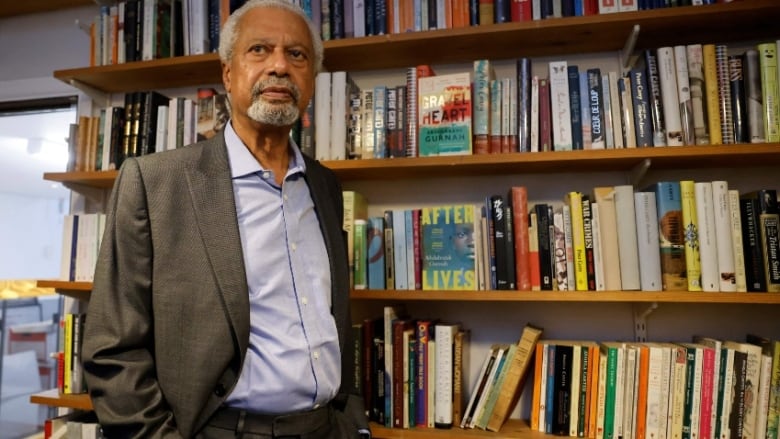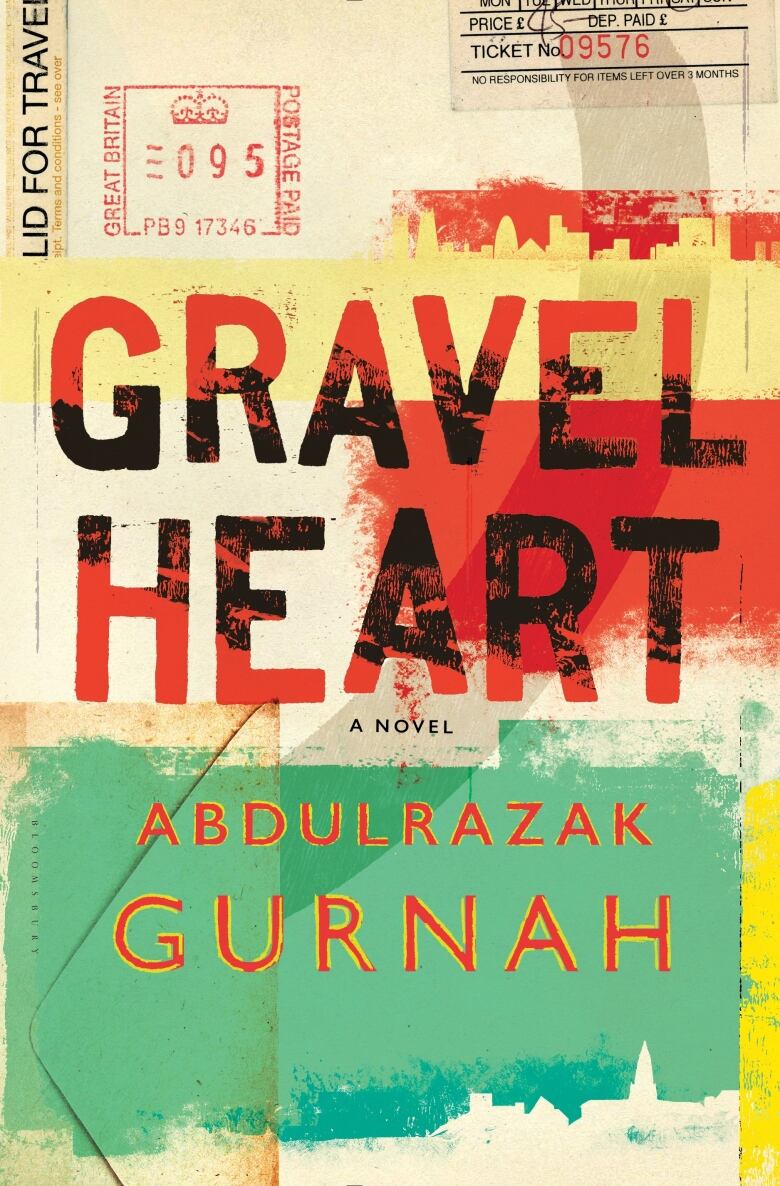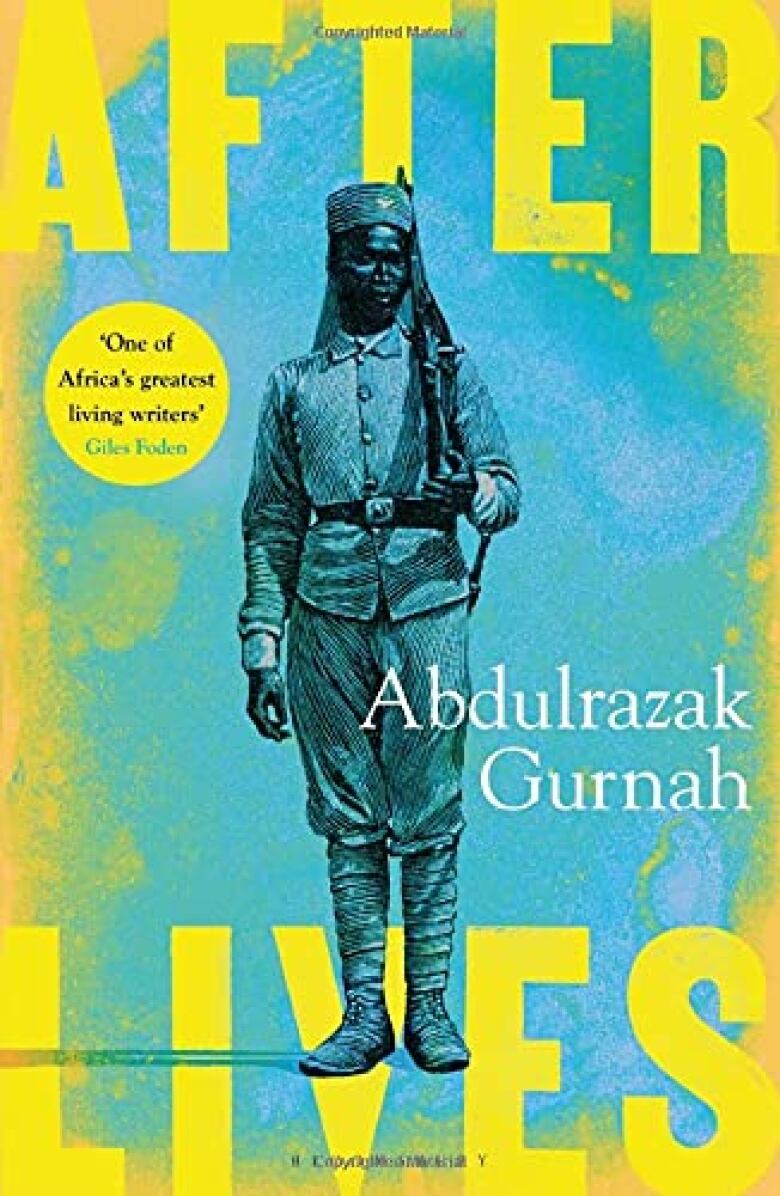Nobel Prize winner Abdulrazak Gurnah explores the pain of dislocation, from Zanzibar to England


This interview was originally broadcast on Dec. 10, 2017.
Tanzanian British writer Abdulrazak Gurnah has won the 2021 Nobel Prize in Literature.
Gurnah is best known for novels that explore immigrant life, dislocation and the effects of colonialism. His 1994 book, Paradise, was shortlisted for the Booker Prize and the Whitbread Prize. Other acclaimed works include his 2001 novelBy the Sea and 2005's Desertion. His latest novel, Afterlives, takes place in German-occupied East Africa at the beginning of the 20th century.
Eleanor Wachtel has spoken with Gurnah twice, most recently in 2017 about Gravel Heart a novel that reflects his own story. It follows a timid and troubled child named Salim from his boyhood in Zanzibar through his painful coming-of-age as an immigrant in England. Widely praised for its insight and sensitivity, the novel has been called a "quiet masterpiece."

Born in Zanzibar in 1948, Gurnah left the island off the coast of East Africa in the midst of political turmoil and violence when he was scarcely 18. He arrived in Canterbury, England, where he pursued engineering, then switched to English literature and before long, started writing.
Abdulrazak Gurnah spoke to Eleanor Wachtel from the University of Kent in Canterbury in 2017.
What letters home cannot say
"When I started to write Gravel Heart, I wanted to capture why it feels so bad to be living so far away from people you care for. I was thinking ofthe ongoing conversation that Salim, the protagonist, was having with his mother through their letters. Their relationship is potent, and he hasn't forgotten about her.
"But there are things he cannot write about because of the distance, which can create room for misunderstanding, room for upsetting her.
When I started to write Gravel Heart, I wanted to capture why it feels so bad to be living so far away from people you care for.
"There's a reticence that comes out of sorrow when people are sad, they don't always know how to speak about it. He continues writing. Maybe he's also confiding to himself; maybe he's doing that thing that people do when they write in a journal."

Respecting sorrow
"There is a way in which sorrow is misunderstood as a kind of self-indulgence. I use what we call homesickness. At some point,Salimsays that, for years, he has felt homesick.Nowa general reaction would be to say it's an adolescent thing. And,if you'rein your 60s like me and you say to people 'I feel homesick,' they look pityingly at you.
There is a way in which sorrow is misunderstood as a kind of self-indulgence.

"It's not something that is understood as a serious and deep longing, which people in their very last breath probably still feel if they're dislocated.
"There are certain kinds of sorrows which you are not supposed to feel sorrows that you should outgrow."
Migration today is different up to a point
"When you go to London, you notice it's a multicultural city. In other cities you see the same thing. Visibly things look different. Butthe language with which outsiders are spoken of and the language which the state treats outsiders is actually, in somecases, worse.
"The register has simply evolved into something else rather than becoming more humane.
The language with which outsiders are spoken of and the language which the state treats outsiders is actually, in somecases, worse.
"I'm afraid something still needs to be done people still need to be saying things and campaigning and persuading and so on when it should be perfectly obvious that we should be past these inhumane and obnoxious, confused notions of privilege and race."
Abdulrazak Gurnah's comments have been edited and condensed.













_(720p).jpg)


 OFFICIAL HD MUSIC VIDEO.jpg)
.jpg)



























































































